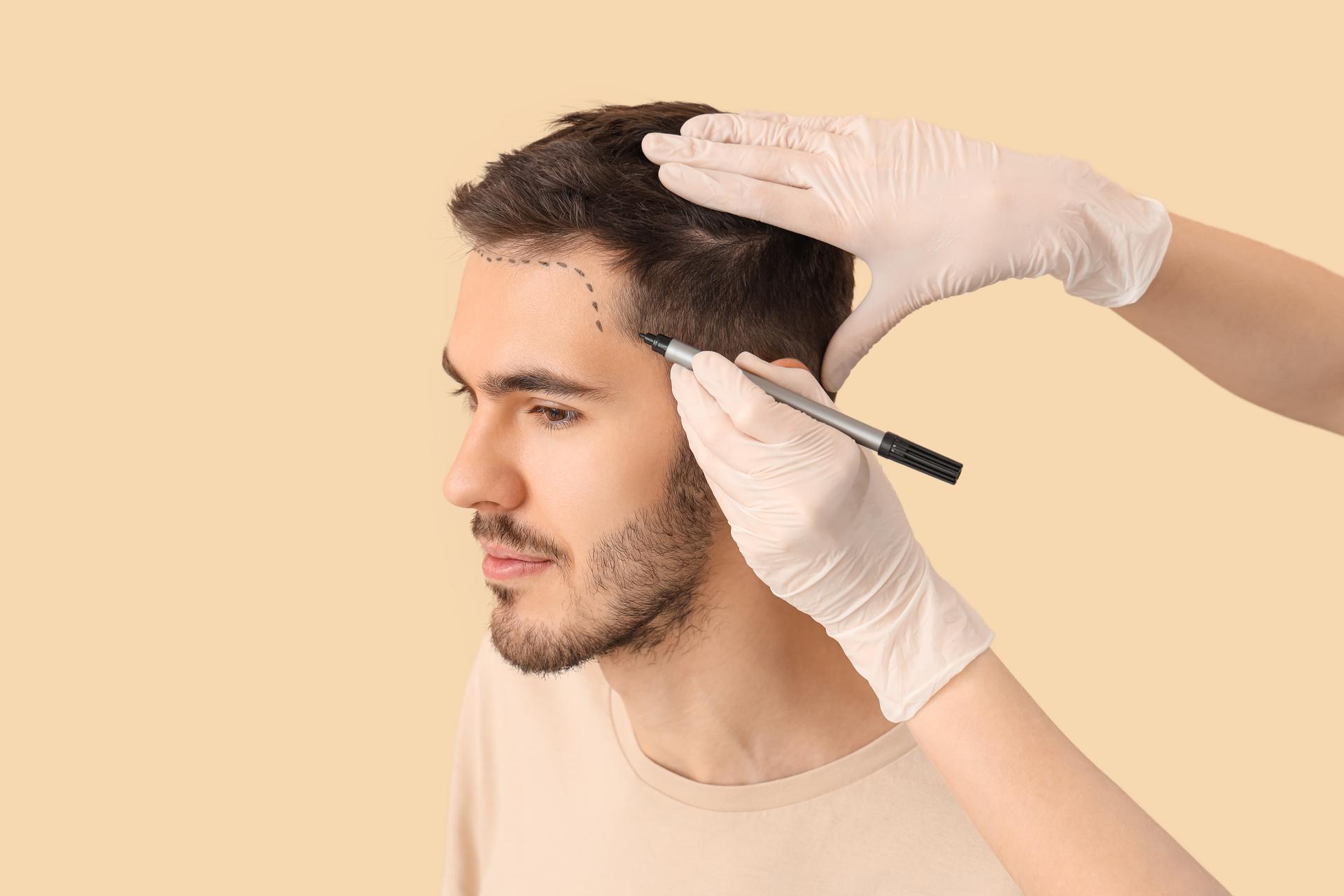Male pattern baldness is one of the men’s most natural factors of hair loss and affects every area of the head. However, as part of the male pattern baldness, most men experience thinning in or around the crown area, leading to crown hair loss. The hair loss amount is measured through the Norwood Scale classification system. Although several treatment options are available, an FUE hair transplant is optimal for crown hair loss. Hair transplantation is one of the biggest domains of the cosmetics industry. The United States is the third biggest subscriber of crown hair transplants, with nearly 66% of people going for FUE hair transplants. So, if you suffer from crown hair loss, seek the best FUE Hair Transplant Treatment in Freehold, NJ. This blog explains how FUE Crown Hair Transplant can help you to regain your confidence.
What Is FUE Crown Hair Transplant?
A crown hair transplant is a surgical procedure for people who experience hair loss due to androgenetic alopecia. However, unlike other hair transplants, crown hair transplants have some substantial differences, as the skin is thicker in that section of the head. Different patients have different severity of balding, and due to this reason, the course of treatment is determined. For those experiencing thinning, PRP treatment may be all that is needed. Similarly, for those who have suffered extensive balding in crowing or other areas, an FUE hair transplant may be required.
Ideal Candidate for Crown Hair Transplants
Although FUE hair transplant is the best solution for treating male pattern baldness, the reality is that to be a good candidate for the procedure, certain prerequisites are essential. There are considerations that patients need to bear in mind to ensure that they are the right candidate. Here are some key elements that give a better indication-
- Aging: Aging plays a role, and ideally, candidates over 30 years old are the best candidates. Some candidates can begin losing their hair at a very young age and wish to seek out treatments quickly. If younger patients in their early twenties experience immature hair loss and undergo treatment, they may need additional treatments later.
- Type of Baldness: The best candidates are those who suffer from male pattern baldness. This is a genetic condition that typically affects parts of the scalp. In contrast, patients suffering from alopecia would not be recommended for hair transplants as they have poor hair donors.
- Overall Health: To be a good candidate, a patient must be in good health. Regular exercising, a healthy diet, and practicing good lifestyle choices will work to boost the immune system.
- Type of Hair: Although FUE hair transplant is suitable for all types of hair, the thicker the hair, the more coverage it will give in bald spots, and similarly curly or wavy hair will also give better coverage.
See Also: How Do I Prepare for FUE Hair Transplant?
What Is the Procedure for FUE Hair Transplantation?
The procedure of FUE Hair Transplantation consists of three stages which are as follows:
Before the Surgery
Before the procedure begins, patients visit their surgeons or dermatologists for consultation regarding their condition. At this phase, the treatment approach, costs, and facilities associated with the procedure will be determined.
During the Surgery
During the FUE hair transplant, the patient will first be dosed with local anesthetic by the surgeon. Afterward, surgeons will take hair follicles from a donor area, typically behind the scalp, and implant them into the crown. The severity of baldness will determine the number of follicles needed. The crown will need more grafts than usual if it is completely bald.
After the Surgery
Post-FUE hair transplant procedure, the patient will receive complete aftercare, which is crucial for recovery. The recovery span depends on selecting treatment options and the number of grafts implanted. Non-invasive hair treatments, such as FUE hair transplant, have a recovery duration of 7-10 days.
The patient should expect to wait between 4-8 months to get desired results. This gives new hair follicles the time to grow naturally. After 4-8 months, the crown should start looking thicker and fuller. For more information, visit hair transplant in NJ.
The Growth Duration of Crown Hair Transplant
Depending on the condition, the crown area requires significant grafts and may need additional surgeries. Therefore, it might take a while to recover from the surgery. However, the overall crown grows back after 12-18 months.
Grafts Required for Crown Hair Transplant
The graft requirement depends on the patient’s condition. However, in normal cases, grafts between 800-1500 are recommended.
Results of Crown Hair Transplant
In FUE hair transplant, the hair regrowth is normal in the donor area within 2-4 weeks. For the recipient area, the regrowth takes around 4-8 months.
What Are the Treatment Options for Crown Hair Loss?
Essential treatments for crown hair loss include,
1. Minoxidil
Minoxidil is a topical hair loss treatment. Patients can apply it twice a day to help promote hair growth.
2. Massaging
Massaging helps blood flow more easily to the follicles and promotes hair growth. Using castor oil as a hair moisturizer gets the blood flowing and grows more and thicker hair.
3. Oiling
Essential oils like rosemary and lavender enable the scalp to promote hair growth. Before applying the oil, make sure to dilute it with a carrier oil.
4. Anti-Hair Fall Shampoo
Anti-hair fall shampoo adds volume and nourishes hair and its follicles with amino acids and vitamins.
5. Vitamins
Multivitamins ensure that hair grows back consistently thick and healthy. Other supplements that may help are biotin, omega-3, and omega-6 fatty acids.
See Also: FUE vs. FUT Hair Transplant – What Are the Differences?
Final Thoughts
Hair loss is a common ailment naturally found in males and females. However, it makes a dent in your appearance, affecting your confidence. With an FUE hair transplant, you can get your natural and thick hair again. But before going for the treatment, it is highly advisable to research before moving forward.
Get the Best FUE Crown Hair Transplant at New Jersey Hair Restoration Center
Looking to restore your thinning or balding crown? Look no further than New Jersey Hair Restoration Center. We focus on providing high-quality hair growth treatments for hair loss. Our skilled surgeons have played a huge role in restoring the confidence of people suffering from balding. Schedule your appointment or call us for an effective hair loss solution.


